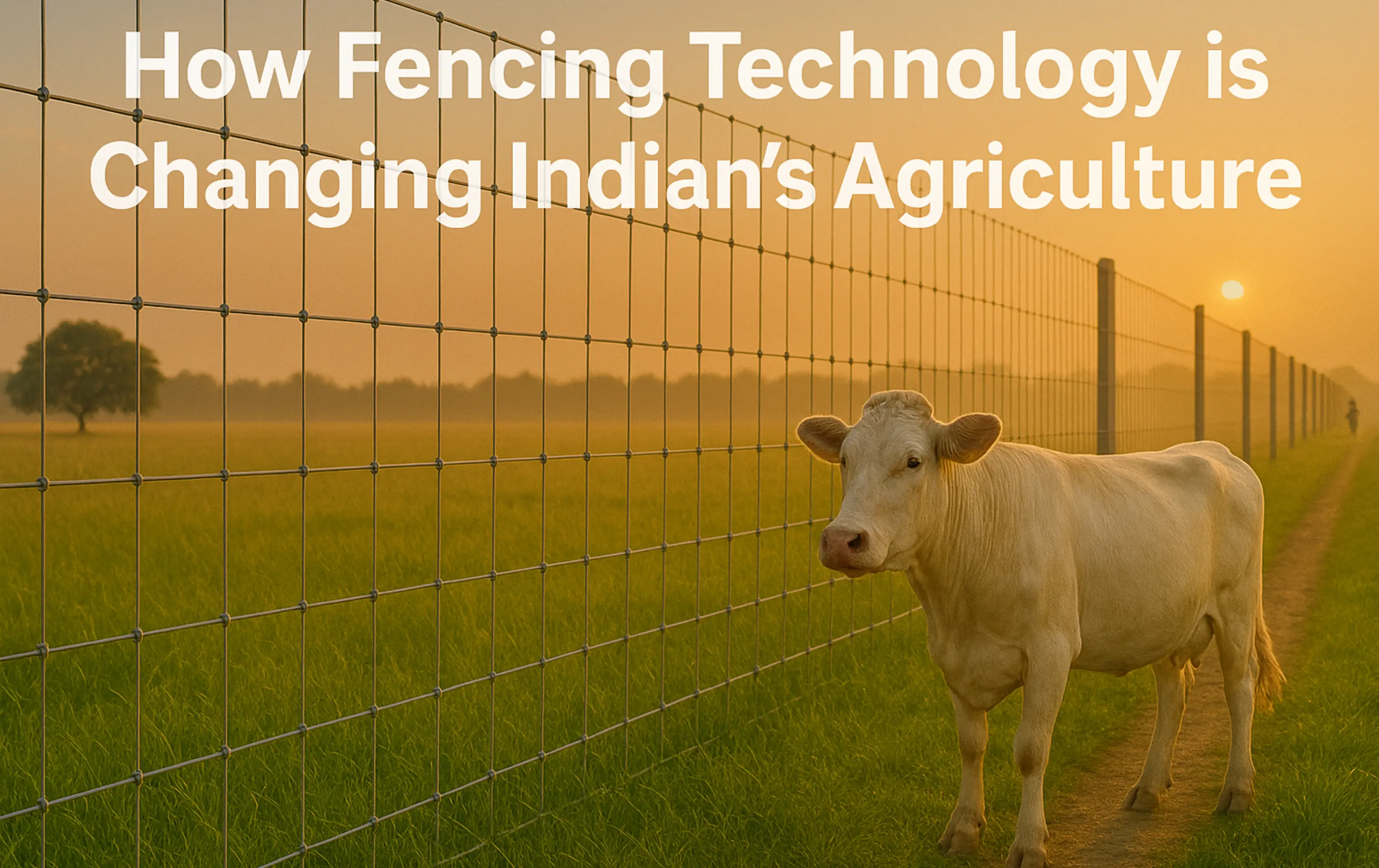 22 Apr 2025
22 Apr 2025
The agricultural sector in India is undergoing a massive transformation and one of the key innovations that are driving this change is fencing technology. With the rising concerns regarding crop protection, land encroachment, and farm management, new fences—chain link fences and security fences—are becoming important for farmers.
Let's observe how fencing is revolutionizing Indian agriculture step by step.
One of the most significant threats to farmers is crop loss due to stray animals such as cows, blue bulls (nilgai), and wild boars. Chain link fencing provides a cost-effective and long-lasting solution.
Strong Barrier: Keeps animals out of fields and away from crop damage.
Weatherproof: Galvanized wires are rust-resistant even in harsh weather conditions.
Low Maintenance: After installation, chain link fencing can go on for years with minimal maintenance.
This easy fencing improvement assists farmers in safeguarding harvests and minimizing losses without manual guarding.
Land boundary disputes are prevalent in rural regions. The presence of secure fencing facilitates demarcation of property boundaries.
Chain link fencing or barbed wire facilitates demarcation of farm boundaries clearly.
Minimizes legal conflicts and neighbor disputes.
Enhances land value and identity.
Farmers do not have to worry about encroachment, illegal cultivation, or property damage anymore. Their land is a demarcated asset, safe and secure.
Installing security fences around farm properties not only safeguards crops and land, but also gives peace of mind.
Farmers can work freely without having to guard fields 24/7.
Safeguards valuable equipment, tractors, and inputs stored in sheds.
Reduces theft and trespass in outlying farm areas.
This shield of protection from fencing provides farmers with a psychological advantage, particularly in rural areas where there is high-risk theft and wildlife encroachment.
Through the application of drip and sprinkler irrigation systems, fencing prevents damage to irrigation systems.
Prevents stray animals from damaging pipes and control systems.
Organizes irrigation areas through sectional fencing.
Helps in improved water distribution and farm planning.
Fencing becomes farm planning and contributes to proper water conservation, which is necessary in arid areas.
Organic farming, smart farming, and polyhouses all necessitate disciplined land planning and regulation.
Shades belts and vertical farming and green house cover enable.
Facilitates sectional planning of crops (vegetables, herbs, cereals, etc.).
Bestows professionalism and looks to agri-entrepreneurs and farm tourism.
With intelligent fencing, agriculture turns into agri-business, and the farms appear and operate better.
Strong fencing is not confined to fields—it plays a vital role in making agriculture and allied industries closer.
Applied in poultry, dairy, fish rearing, and vermicomposting units.
Seperates crops from livestock and working areas.
Enhances sanitation, productivity, and movement control.
With industry-level fences, farmers can diversify income and have clean, organized working areas.
In response to growing demand for fencing, rural entrepreneurship and jobs have grown:
Fence production units (barbed wire, chain link mesh, etc.)
Fence installation contractors
Hire of fencing machine equipment
Secure Fencing Maxx type initiatives have enabled local entrepreneurs through provision of access to automatic chain link fencing machines, turning villagers into entrepreneurs.
Those days of manual fencing are gone. Automatic and semi-automatic chain link fencing machines now make fast and accurate fencing production possible.
Increases supply and reduces cost
Makes fencing available even in remote areas
Supports Make in India and Rural Innovation initiatives
With India-made competitive fencing technology, Secure Machines & Automation Pvt. Ltd. is leading this revolution.
Encouraging farmers to install fences financially through PM-KUSUM, Rashtriya Krishi Vikas Yojana, and state subsidy frameworks.
Providing maximum 60% to farmers for subsidized solar fencing.
Positional encouragement for high-risk perimeter fence placement.
Improvement of safety as well as productivity is encouraged.
Farmers are afforded better protection at a lower cost through fencing technology integration in such initiatives.
The future of Indian agriculture is founded on security, innovation, and resilience—and fencing in the limelight.
From chain link fence to barbed wire, and from computer-programmed security fencing, it helps to:
Increase productivity
Increased use of land
Rural economies made safer
Conclusion
Fencing is not just a barrier—it's an Indian agriculture changer. From crop protection and fewer conflicts to the enabling of new farming practices, safe fencing is empowering farmers with new influence, strengthening food security, and changing rural economies.